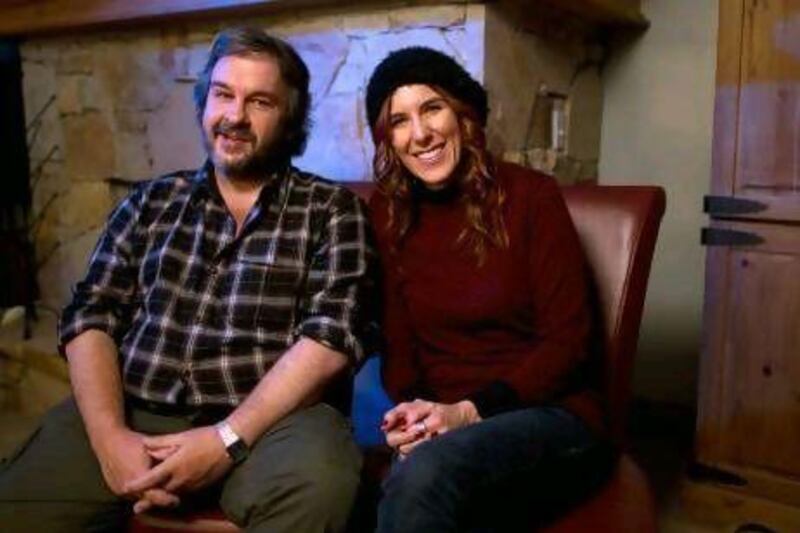Gruesome murders have long fascinated the film world, but one case has received more attention than almost any other in recent years, and for very different reasons from most.
The savage killings almost 20 years ago of three 18-year-old boys in the town of West Memphis, Arkansas, led to a trio of documentaries, with the latest, Paradise Lost 3: Purgatory, nominated at this year's Academy Awards.
But the deaths themselves - said at the time to have been part of a satanic ritual - have become secondary to the story of those accused of them, the so-called West Memphis Three.
Convicted on the flimsiest of evidence in 1994, Damien Echols, 18, found himself on death row, while Jessie Misskelley, Jr, 17, and Jason Baldwin, 16, received life sentences. Much of the prosecutors' case centred on an alleged confession from Misskelley, whose IQ was reported to be just 72. Experts later claimed the confession was a "classic case" of police coercion.
Links to satanic practices made in the trial were also later discredited. After a high-profile campaign calling for the men's release, supported by a host of A-list actors and musicians, they were finally freed in 2011 when new DNA tests found no evidence linking the men to the killings.
But their story seems of greater interest to Hollywood now than ever before. Two big-screen dramatisations are currently in the works - one to be produced by Johnny Depp, the other to star the Oscar-winner Colin Firth.
In January, another documentary, West of Memphis, premiered at the Sundance film festival. It was produced by the Lord of the Rings filmmaker Peter Jackson, who helped fund the legal challenge that secured the men's release.
"We went into this case believing that they didn't do it, and the facts and the evidence we came out with at the end completely supported that," Jackson told the Associated Press.
The widely held belief that the three were convicted as a result of their choices of lifestyle, rather than any hard evidence, was what brought their plight to the attention of many of their famous supporters. These included the band Metallica, who allowed their music to be used in a film for the first time for 1996's Paradise Lost.
Last month, Depp - a long-time campaigner for the West Memphis Three's release - optioned the forthcoming memoir by Echols. Accused of being the ringleader of the group, he was freed from death row under a controversial plea bargain which saw the trio released from jail, but denied the right to sue the state authorities for wrongful imprisonment. Their convictions remain in place.
The as-yet-untitled book is likely to focus on Echols's 18-year imprisonment, during which time he went for as long as a decade without seeing sunlight and lost much of his vision.
Although his reading and verbal skills were above average, Echols had shown signs of mental illness in his youth and had been arrested for petty crimes. When police discovered the naked and bound bodies of the three boys near a creek in the Robin Hood Hills, they quickly suspected the 18-year-old, who was known to have been interested in the occult.
The evidence given by local woman, Vicki Hutcheson, that she had attended a Wiccan meeting with Echols and Misskelley, helped convict the men - a claim she later admitted was a fabrication, made because she feared the police would take her child into care.
Likely to beat Depp's movie to the screen is Devil's Knot, the Canadian director Atom Egoyan's adaptation of the book by Mara Leveritt. It will star Firth as Ron Lax, the private investigator who represented the West Memphis Three pro bono and worked on their case for years.
A fellow Oscar-winner, Reese Witherspoon, has been cast as Pam Hobbs, the mother of one of the murdered boys, whose now-ex husband, Terry Hobbs, has been linked to the murders by numerous sources in recent years.
"It's a contemporary Salem witch-hunt," Egoyan told The Hollywood Reporter. "The screenplay beautifully examines the ebb and flow of grief, disbelief and anger that flowed through the community in the wake of this catastrophe. It's an amazing story of a community and the conflicting emotional needs of seeking and finding justice, but also the complexities of jumping to conclusions."
Both planned dramatisations will help to keep the plight of the West Memphis Three in the public eye, but neither is likely to have the profound impact of Jackson's documentary (directed by Amy Berg) or the Paradise Lost films. Echols himself has stated that he would still almost certainly be on death row, or perhaps even have been executed, if it had not been for the filmmakers' efforts.
Jackson has said he plans to continue his involvement in the case and hopes to have the men's convictions overturned once and for all.
Follow
Arts & Life on Twitter
to keep up with all the latest news and events
[ @LifeNationalUAE ]





